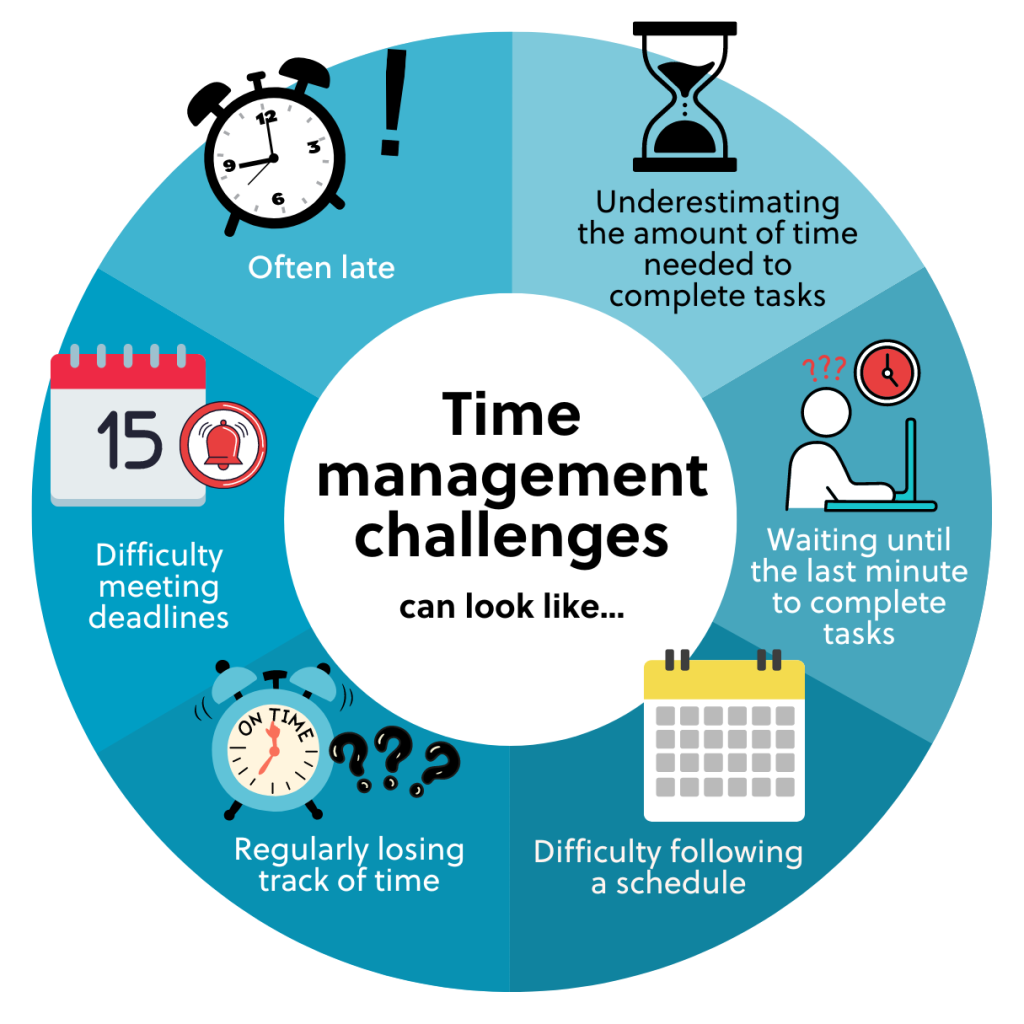The GATE exam (Graduate Aptitude Test in Engineering) is one of the toughest competitive exams for engineering and science graduates. With a vast syllabus and high competition, mastering time management is essential to achieve a high score.
At GATE AT ZEAL, we understand the importance of an effective study plan, strategic preparation, and time-efficient problem-solving techniques to help students ace the GATE exam.
Table of Contents
Why Time Management is Key for the GATE Exam?
The GATE exam consists of 65 questions with a 3-hour duration, making time management a critical factor in success. A lack of planning can lead to:

- Incomplete syllabus coverage
- Ineffective revision
- Last-minute stress and panic
- Poor time allocation during the actual exam
To avoid these pitfalls, GATE AT ZEAL recommends a well-structured study plan with a balance between learning, practicing, and revision.
Also Read: GATE 2026 Study Plan: Your Ultimate Roadmap to Success in CSE
Proven Time Management Strategies for GATE Exam Success
1. Create a Smart Study Plan
To make the most of your preparation, follow these expert study tips:
✔ Divide the syllabus into high-weightage and low-weightage topics.
✔ Allocate specific time slots for each subject based on difficulty level.
✔ Use a time-blocking approach to ensure focused study sessions.
✔ Include breaks and revision sessions in your schedule.
Sample Weekly Study Plan
| Day | Time Allocation | Task |
|---|---|---|
| Monday | 2 Hours | Concept Learning (Core Subject 1) |
| Tuesday | 1.5 Hours | Problem Solving & Mock Tests |
| Wednesday | 2 Hours | Concept Learning (Core Subject 2) |
| Thursday | 1.5 Hours | PYQs & Speed Practice |
| Friday | 2 Hours | Subject-wise Test Practice |
| Saturday | 1.5 Hours | Weak Areas Improvement |
| Sunday | 3 Hours | Full-Length Mock Test & Analysis |
2. Prioritize High-Weightage Topics
Focusing on high-weightage topics first ensures maximum marks in less time. Here’s how:
✔ Start with core subjects and frequently asked concepts.
✔ Refer to previous year papers to identify important topics.
✔ Allocate more time to difficult subjects and keep revision slots for easier topics.
Also Read: How to Crack PSU Interview | Tips to crack PSU Interview | PSU Interview Guidance

3. Set Daily and Weekly Goals
Setting realistic and achievable study goals helps in consistent progress.
✔ Daily Goal Example: Solve 20-30 numerical problems and revise one subject.
✔ Weekly Goal Example: Complete two subjects with topic-wise tests.
✔ Monthly Goal Example: Cover 60-70% of the syllabus and attempt 3 full-length mock tests.
Pro Tip: Use checklists and productivity apps to track progress.
4. Practice Time-Based Mock Tests
Mock tests are game-changers for time management during the GATE exam.
✔ Attempt full-length mocks in 3-hour slots to simulate exam conditions.
✔ Learn to manage time effectively across sections.
✔ Analyze mock test performance to identify weak areas.
Time Allocation Strategy During Exam:
| Question Type | Time Limit |
|---|---|
| 1 Mark MCQs | 25-30 minutes |
| 2 Mark MCQs | 60 minutes |
| NAT (Numerical Answer Type) | 50-55 minutes |
| Revision & Review | 30-35 minutes |
Avoid spending more than 2-3 minutes on any single question. If stuck, move forward and return later.
5. Use Smart Learning Techniques
Leverage technology and visual learning to enhance time management.
✔ Use digital boards, mind maps, and flashcards for quick concept recall.
✔ Watch GATE coaching videos for in-depth explanations.
✔ Make concise notes to speed up revision.
At GATE AT ZEAL, we provide:
Personalized mentorship to improve time management skills.
Structured learning modules for efficient syllabus coverage.
Topic-wise tests and mock exams to enhance speed and accuracy.
Also Read: Global Vs Local Cache Hit/Miss Rate | GATE 2025 | CSO

6. Avoid Procrastination & Stay Consistent
Many aspirants struggle with procrastination and irregular study patterns. To stay on track:
✔ Follow a strict timetable to avoid distractions.
✔ Break down complex topics into smaller, manageable sections.
✔ Join study groups for motivation and peer learning.
Pro Tip: Use the “5-minute rule”—if you feel like procrastinating, study for just 5 minutes. This reduces resistance and builds momentum.
How GATE AT ZEAL Helps You Master Time Management
At GATE AT ZEAL, we provide:
Structured Study Schedules – Time-efficient plans for systematic preparation.
Expert Mentorship – Personalized guidance to improve weak areas.
Regular Mock Tests – Simulated exam conditions for enhanced time management.
AI-Driven Analytics – Track progress and suggest improvements.
Our students have successfully cracked GATE 2023 using these time management strategies. Now, it’s your turn!
Final Thoughts: Master Time Management & Ace GATE Exam
Mastering time management for GATE exam is essential to secure top ranks. A strategic approach, consistent practice, and expert guidance from GATE AT ZEAL can help you achieve your dream score.
Start your GATE 2026 preparation today!
Join GATE AT ZEAL for the best coaching and time management strategies to boost your success.
Do you have any specific time management challenges? Drop your queries in the comments below!
FAQs
1. Why is time management important for the GATE exam?
Time management is crucial for the GATE exam because it helps aspirants cover the vast syllabus efficiently, balance preparation with revision, and enhance problem-solving speed during the exam. Without proper time management, students may struggle to complete the syllabus and maximize their scores.
2. How can I create an effective time management strategy for GATE preparation?
To create an effective time management strategy:
✔ Prioritize high-weightage subjects first.
✔ Set daily, weekly, and monthly study goals.
✔ Follow a structured study plan with dedicated revision time.
✔ Solve previous year’s question papers and take mock tests.
✔ Use smart learning techniques like mind maps and flashcards.
3. How many hours should I study daily for the GATE exam?
Ideally, you should study 6-8 hours per day for 6-12 months before the exam. However, the number of hours may vary based on individual understanding, strengths, and weaknesses.
4. What are the best time management techniques during the GATE exam?
During the exam, follow these time management strategies:
✔ Start with easy and less time-consuming questions.
✔ Allocate specific time for each section and stick to it.
✔ Skip difficult questions and return to them later.
✔ Keep 20-30 minutes for revision at the end.
5. How do mock tests help with time management for GATE?
Mock tests simulate real exam conditions, helping you:
✔ Improve speed and accuracy.
✔ Learn time allocation for different sections.
✔ Identify weak areas that need more attention.
✔ Reduce exam stress and boost confidence.
6. How many mock tests should I take before the GATE exam?
It is recommended to take at least 20-30 full-length mock tests before the actual GATE exam. Additionally, subject-wise and topic-wise tests can further enhance your preparation.
7. Can I prepare for the GATE exam in 6 months with proper time management?
Yes, with a disciplined approach and effective time management, 6 months is sufficient for GATE preparation. Focus on:
✔ Completing high-weightage subjects first.
✔ Practicing previous year papers regularly.
✔ Taking full-length mock tests weekly.
✔ Revising important formulas and concepts frequently.
8. What role does revision play in time management for the GATE exam?
Revision is essential to:
✔ Reinforce key concepts.
✔ Improve recall ability during the exam.
✔ Avoid last-minute stress.
✔ Strengthen weak areas and boost confidence.
9. How can GATE AT ZEAL help me with time management for GATE?
At GATE AT ZEAL, we provide:
Personalized study plans for better time management.
Expert mentorship to guide your preparation.
Regular mock tests & performance analysis.
Structured revision strategies for last-minute preparation.
10. How can I balance GATE preparation with college or a job?
Balancing GATE preparation with college or a job requires:
✔ Creating a realistic study schedule with 3-4 hours daily.
✔ Utilizing weekends for full-length mock tests and revisions.
✔ Studying during early mornings or late nights to minimize distractions.
✔ Using short study techniques like Pomodoro for efficient learning.




















